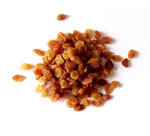Diagnosis and Management of Postpartum Depression
Posted by: admin on: June 4, 2011
Standard treatment of postpartum depression is still psychotherapy and antidepressant medications, but other modalities may also be beneficial.
Team@CMHF
- PPD (postpartum depression) is a serious medical matter not only because of the suffering it causes women, but because it can negatively affect infants emotionally, socially, and even cognitively, sometimes far beyond the time of the depression.
- The most severe adverse outcomes of PPD include increased risk of marital disruption and divorce, child abuse and neglect, and even maternal suicide or infanticide.
- Children of depressed mothers may experience insecurity, low self esteem, and even decreased intellectual skills or language development.”
- Postpartum depression affects women from all cultural and racial backgrounds and is a serious form of major depressive disorder.
- Characteristic symptoms include sadness, anhedonia (loss of pleasure in normally pleasurable activities), and other depressive symptoms.
- Psychomotor agitation, reduced concentration and anxiety are typically more pronounced in postpartum depression than in women with major depressive disorder.
- Potential psychosocial risk factors include major depressive disorder or anxiety during pregnancy a history of major depressive disorder, premenstrual dysphoric disorder, undue life stress before conception, lack of social support, marital problems, poverty and young maternal age.
- Causes of postpartum depression may be multifactorial, including the rapid decrease in plasma levels of estrogen and progesterone after pregnancy, postpartum hypothyroidism or autoimmune thyroid disease, sleep deprivation, and/or challenging life circumstances.
- General practitioners may encounter women with undiagnosed postpartum depression and should be able to recognize this highly prevalent condition.
- Prompt diagnosis, intervention, and treatment or referral for care as appropriate may be a great benefit to the lives of mothers with postpartum depression and their infants.
- Psychotherapy and antidepressant medications are the standard treatments of postpartum depression.
- For nursing mothers with postpartum depression, interpersonal therapy may be an effective option for first-line treatment.
- Women receiving IPT (interpersonal therapy) have reduced depressive symptoms over time compared to their wait-listed or control counterparts.
- IPT is a logical first line of treatment for depressed, breastfeeding women due to no side effects to the breast fed infants.
- Because few adverse effects have been observed in breast-fed infants, sertraline is relatively safe.
- Sleeping in the dark at night and avoiding blue light in particular may help regulate melatonin cycles and help prevent postpartum depression.
- PPD makes postpartum phase of life especially burdensome and difficult for some women.
- Primary care physicians are in a unique position to lessen the pain of both mothers and their babies.
More at http://www.medscape.com/viewarticle/737312?src=mpnews&spon=34
Search
- drchasrani: Difficult to get such a data, authenticated at that. Try Times of India online library
- rakesh pore: hi, where can i get genuine information about "10 most common drugs sold in india?" i want it for a local project
- nilesh dutta: sir, Plz give detail about MBA Sports Management Thanks and Regards


Leave a Reply